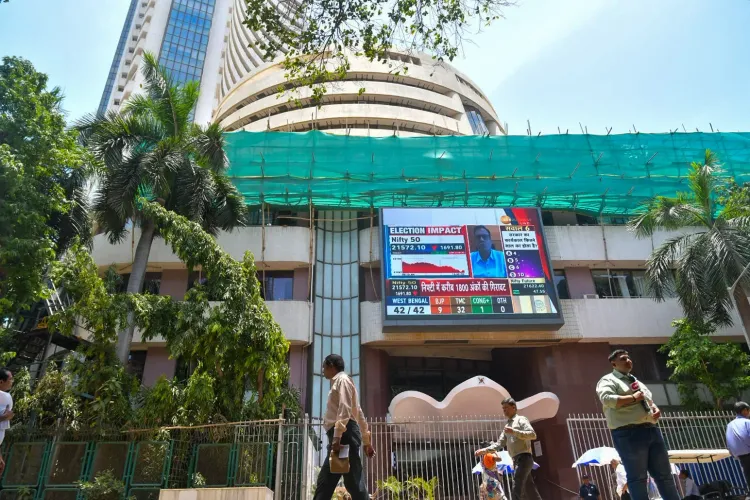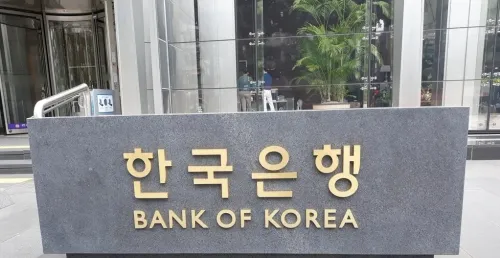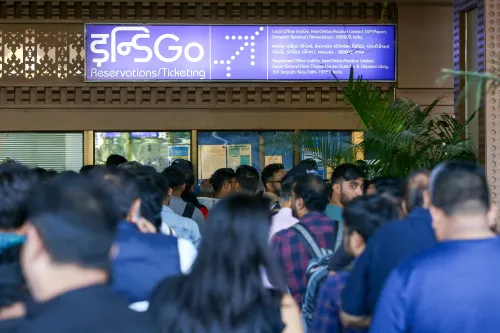How Did the Indian Stock Market React to Higher US Tariffs?

Synopsis
Key Takeaways
- Sensex closed at 80,710.25, down 308.47 points.
- Nifty settled at 24,649.55, down 73 points.
- Mixed reactions observed across sectoral indices.
- Major sectors like Pharma and Oil & Gas showed weakness.
- Rupee traded weak at 87.80.
Mumbai, Aug 5 (NationPress) The Indian stock market ended in the red on Tuesday, reflecting a mixed sentiment among investors following US President Donald Trump's renewed tariff threats and India's firm response.
The Sensex concluded at 80,710.25, declining by 308.47 points or 0.38 percent. The 30-share index opened slightly lower at 80,946.43, compared to the previous day's close of 81,018.72. As the session progressed, the index further deepened its losses, influenced by a mixed reaction in the Auto and Consumer Durable sectors, along with selling pressure in Pharma and Consumer Goods.
The Nifty settled at 24,649.55, down 73 points or 0.30 percent.
According to Ashika Institutional Equities, "Sectoral trends were mixed, with Auto and Consumer Durables displaying relative strength, while many other sectors closed lower. Specifically, Oil & Gas, Pharma, Construction, and Consumer Goods showed significant weakness."
As the market awaited tomorrow's monetary policy announcement, caution loomed, leading to renewed selling in banking stocks during the latter half of the session.
Among the major losers were Reliance Industries, Infosys, ICICI Bank, Eternal, BEL, Powergrid, and HDFC Bank. On the other hand, stocks like Titan, Maruti, Trent, Bharati Airtel, Bajaj Finance, L&T, SBI, and Tech Mahindra managed to close positively.
Most sectoral indices ended the day lower, with Nifty Fin Services dropping 103 points or 0.39 percent, Nifty Bank falling 259 points or 0.47 percent, Nifty IT declining 168 points or 0.48 percent, and Nifty FMCG closing 405 points lower. Conversely, Nifty Auto ended in the green.
The rupee traded weak at 87.80 as anxiety gripped markets following a late-night tweet from the US President regarding higher tariffs on India.
Jateen Trivedi from LKP Securities stated, "Concerns that the US might pressure India to decrease its Russian oil imports raised fears of a higher import bill, which briefly pushed the rupee below the 88.00 mark overnight." He added that some recovery was observed after the Ministry of External Affairs clarified India’s position on crude purchases.










